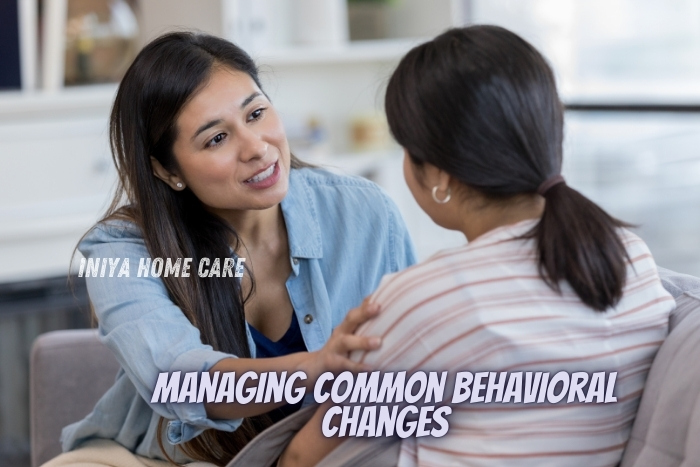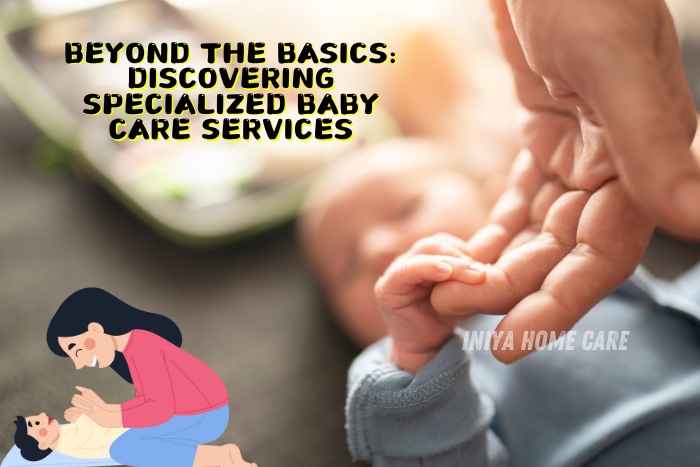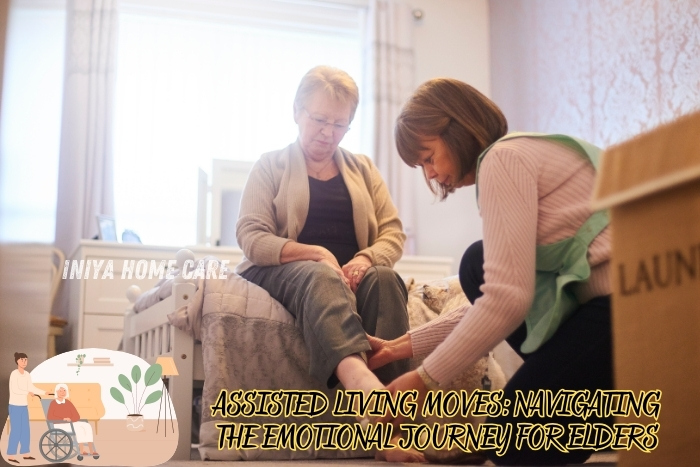Dementia is a complex and challenging condition that affects not just the individual, but also their family and loved ones. As the cognitive functions of a person with dementia decline, it becomes increasingly important to create a care plan that not only addresses their physical needs but also their emotional well-being. Navigating the care landscape for someone with dementia can be overwhelming, but with the right strategies, families can ensure that their loved ones receive compassionate, respectful, and effective care.
At Iniya Home Care, based in Pollachi, we understand the unique challenges faced by families caring for a loved one with dementia. With years of experience providing specialized dementia care, we are dedicated to supporting families with expert guidance, tailored care plans, and compassionate services. In this blog, we will explore effective strategies for families navigating dementia care, with practical tips and insights to help ensure the best possible care for your loved one.
Understanding Dementia
Dementia is not a single disease but a term used to describe a range of symptoms that affect cognitive functioning, including memory, reasoning, and communication. Alzheimer’s disease is the most common form of dementia, but other types include vascular dementia, Lewy body dementia, and frontotemporal dementia.
Common Symptoms of Dementia:
- Memory Loss: Having trouble remembering names, places, and recent events.
Confusion: Increased confusion regarding time, place, or persons. - Communication Issues: Having trouble following talks or coming up with the appropriate phrases.
- Changes in Mood and Behavior: Elevated levels of anxiety, sadness, agitation, or irritation.
- Difficulty with Daily TSasks: Having trouble doing daily tasks like eating or dressing.
Each individual’s experience with dementia is different, and the progression of symptoms can vary. This is why personalized care is essential in addressing both the needs of the individual and the concerns of their family.

Early Signs and Diagnosis
One of the first steps in dementia care is recognizing the early signs. Early detection can make a significant difference in managing the condition. When diagnosed early, families have more time to plan and ensure that proper care and support systems are in place.
Early Signs of Dementia:
- Forgetting appointments or important dates.
- Repeating questions or phrases.
- Struggling to follow a storyline in conversations or books.
- Misplacing items in unusual places.
- Becoming confused with simple tasks, such as paying bills.
If you notice these signs in your loved one, it’s important to seek medical advice. A doctor can conduct cognitive tests and rule out other conditions, ensuring the right diagnosis is made.
At Iniya Home Care in Pollachi, we recommend early intervention for dementia care. Our experienced caregivers are trained to provide specialized care at all stages of dementia, ensuring that your loved one receives the best possible support from the onset of symptoms.
Creating a Supportive Environment at Home
For many families, keeping a loved one with dementia at home can be a comforting option. The familiar surroundings can help reduce confusion and anxiety, but it’s important to adapt the home environment to ensure it is safe and supportive.
Tips for Creating a Dementia-Friendly Home:
- Declutter: Remove unnecessary items to minimize confusion. Clear spaces help reduce the risk of accidents and make navigation easier.
- Install Safety Features: Consider installing handrails in the bathroom, non-slip mats, and nightlights to prevent falls.
- Label Objects: Label drawers, doors, and everyday items to help your loved one remember where things are.
- Create a Routine: Establishing a daily routine can help reduce confusion and anxiety. Set regular times for meals, medication, and activities.
- Use Technology: Utilize technology such as medication reminders, GPS tracking devices, and video calling to stay connected and ensure safety.
At Iniya Home Care, we can guide you in creating a safe and comfortable environment for your loved one with dementia. Our experienced team offers practical advice and hands-on support to help your family make the necessary adjustments at home.
Effective Communication Strategies
As dementia progresses, communication can become increasingly difficult for both the individual and their caregivers. Family members may find it challenging to understand what their loved one is trying to express, which can lead to frustration on both sides. However, there are strategies that can make communication easier and more effective.
Tips for Communicating with a Loved One with Dementia:
- Be Patient: Allow your loved one the time to respond. Don’t rush or interrupt.
- Use Simple Language: Speak in short, simple sentences, and avoid complex questions or instructions.
- Maintain Eye Contact: Non-verbal communication is important. Maintain eye contact and a calm, reassuring tone.
- Avoid Correcting: If your loved one says something inaccurate, avoid correcting them. Instead, gently redirect the conversation.
- Use Visual Cues: Sometimes, showing objects or using gestures can help communicate more effectively than words.
Our caregivers at Iniya Home Care are trained in dementia-specific communication techniques. We understand the importance of creating a calm, supportive atmosphere where your loved one feels heard and understood.
Building a Care Team
Caring for someone with dementia is not a one-person job. It takes a team of professionals, family members, and sometimes, friends, to provide the best care. One of the most effective strategies for families is building a care team that supports both the individual with dementia and the family members who are caring for them.
Who Should Be Part of Your Dementia Care Team:
- Family Caregivers: Family members often take on a large part of caregiving duties. Ensuring they have support and respite is crucial.
- Professional Caregivers: At Iniya Home Care, our trained caregivers provide in-home dementia care, assisting with daily tasks, medication management, and emotional support.
- Healthcare Professionals: Regular checkups with doctors, specialists, and therapists are essential for managing dementia.
- Community Resources: Dementia support groups and community services can offer additional help and respite care options.
- Legal and Financial Advisors: Planning for the future with the help of legal and financial professionals can ease concerns about long-term care.
At Iniya Home Care, we work collaboratively with families to create a comprehensive care plan that includes all necessary support systems. Our caregivers are there to take some of the weight off the family, providing compassionate, expert care.

The Importance of Self-Care for Family Caregivers
Caring for a loved one with dementia can be emotionally and physically exhausting. Many family caregivers experience burnout, stress, and even health problems due to the demands of caregiving. It’s crucial for caregivers to prioritize their own health and well-being.
Self-Care Tips for Family Caregivers:
- Take Breaks: Make time for yourself. Whether it’s a walk, a hobby, or spending time with friends, breaks are important for your mental health.
- Ask for Help: Don’t be afraid to ask other family members, friends, or professional caregivers for help. You don’t have to do it all on your own.
- Join a Support Group: Connecting with other caregivers who understand your challenges can provide emotional support and practical advice.
- Use Respite Care: At Iniya Home Care in Pollachi, we offer respite care services to give family caregivers time to rest and recharge.
- Practice Stress Management: Techniques like meditation, yoga, or even deep breathing can help manage stress levels.
Remember, you can only provide the best care for your loved one if you’re taking care of yourself too.
Understanding Behavioral Changes
Behavioral changes are a common aspect of dementia. Your loved one may become agitated, anxious, or exhibit repetitive behaviors. These changes can be difficult for families to manage, but understanding the triggers and knowing how to respond can make a big difference.
Managing Common Behavioral Changes:
- Agitation: When your loved one becomes agitated, it’s important to stay calm. Try to identify the cause, whether it’s hunger, discomfort, or overstimulation.
- Wandering: If your loved one is prone to wandering, ensure that the home is secure, and consider using GPS tracking devices for safety.
- Sundowning: Some individuals with dementia may become more confused or restless in the late afternoon or evening. Establishing a calming bedtime routine can help reduce this.
- Aggression: Aggressive behavior can be a response to fear or frustration. Approach your loved one calmly, and avoid confrontations. Sometimes, offering a distraction or changing the environment can help.
At Iniya Home Care, our caregivers are trained in dementia-specific care techniques to manage behavioral changes effectively. We help families understand these behaviors and provide support in handling them with compassion and patience.

Conclusion: Compassionate Dementia Care with Iniya Home Care
Navigating dementia care is a journey filled with challenges, but with the right strategies and support, families can provide the best possible care for their loved ones. At Iniya Home Care in Pollachi, we are committed to offering personalized, compassionate dementia care that respects the dignity and well-being of each individual. Our experienced caregivers work closely with families to create a care plan that meets the unique needs of your loved one while providing you with the support you need.
If you are caring for a loved one with dementia and need assistance or guidance, contact Iniya Home Care today to learn how we can help.







